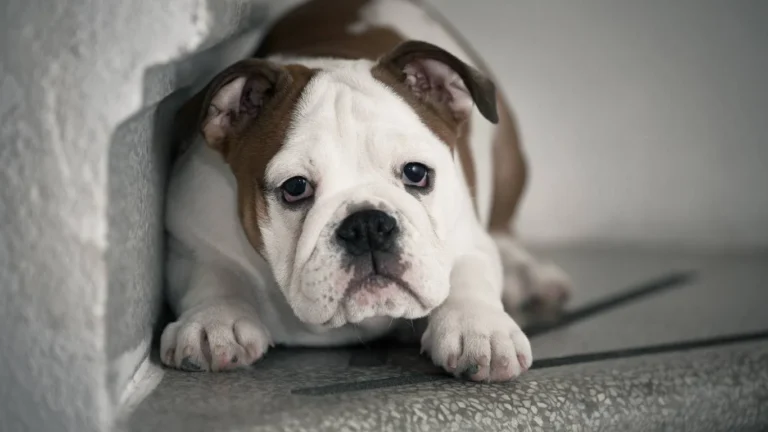Simple Ways to Prevent Kennel Cough in Dogs and Keep Them Healthy
For many dog owners, the sound of a persistent cough can be unsettling. Kennel cough, while common, is not something to ignore. Preventing it takes a thoughtful approach to your dog’s overall health and the environments they interact with. This guide provides clear, supportive advice on how to help protect your dog from this respiratory illness.
What Is Kennel Cough?
Kennel cough, also known as canine infectious respiratory disease complex (CIRDC), is a contagious upper respiratory infection. It’s caused by a combination of bacteria and viruses, including Bordetella bronchiseptica. Most dogs recover well, but some—especially puppies, seniors, or those with underlying health conditions—may need extra care.
Signs and Symptoms
Knowing what to watch for can help you catch it early and prevent spread. While symptoms vary, the most common ones include:
- A dry, hacking cough that sounds like honking
- Sneezing or nasal discharge
- Mild fever
- Lethargy or reduced activity
- Loss of appetite in some cases
These signs often appear a few days after exposure. Most cases are mild, but if the cough worsens or your dog struggles to breathe, it’s time to see a vet.
Causes
Kennel cough spreads easily where dogs gather. Just like colds in humans, it travels through airborne droplets, direct contact, or contaminated surfaces. Dogs are especially at risk in:
- Boarding facilities
- Dog daycares
- Dog parks or crowded public areas
- Training classes or grooming salons
Stress, poor ventilation, and recent vaccinations may also play a role in lowering a dog’s resistance to infection.
How to Prevent Kennel Cough
Preventing kennel cough is about more than avoiding other dogs. It means being proactive with your dog’s health and environment. Here are practical steps you can take:
- Vaccinate regularly. The Bordetella vaccine helps protect against one of the most common causes. It’s available as an injection, nasal spray, or oral dose.
- Ask about facility standards. When boarding your dog or using doggy daycare, choose places with good ventilation, cleaning protocols, and vaccination requirements.
- Keep stress levels low. Stress can weaken a dog’s immune system. Make sure your dog feels safe and supported during travel, training, or transitions.
- Avoid exposure during outbreaks. If you hear of a local outbreak, steer clear of group settings for a few weeks.
- Strengthen immunity. Healthy dogs are more resistant to infections. Offer a balanced diet, regular exercise, and routine vet checkups.
Prevention isn’t perfect, but these steps reduce your dog’s risk significantly.
When to Get Help
If your dog develops a persistent cough or seems unwell, a veterinary visit is a wise next step. Early treatment helps reduce the chances of complications like pneumonia. Call your vet if you notice:
- Coughing lasting more than 5-7 days
- Wheezing or labored breathing
- Refusal to eat or drink
- Gagging or vomiting after coughing
- Lethargy that doesn’t improve
Veterinarians may recommend rest, cough suppressants, or antibiotics if a bacterial infection is involved. In more serious cases, x-rays and other tests may be needed to rule out other conditions.
Treatment and Recovery
Most dogs recover from kennel cough in a week or two with home care. That means a warm, quiet space to rest, fresh water, and encouragement to eat. Your vet may suggest:
- Limiting physical activity while coughing persists
- Using a harness instead of a collar to avoid irritating the throat
- Running a humidifier to ease breathing
- Prescribing medications if symptoms are severe or persistent
During recovery, it’s best to keep your dog away from others. Kennel cough is contagious for up to two weeks, sometimes longer, even after symptoms improve.
What to Expect During an Outbreak
If there’s a local outbreak, it’s natural to feel concerned. Stay informed, but don’t panic. Consider:
- Temporarily avoiding dog parks and high-traffic areas
- Checking with your vet about your dog’s vaccination status
- Looking for low-contact alternatives for exercise and play
Studies have shown that most dogs recover fully with supportive care. The key is early recognition and reducing exposure to others while your dog heals.
Supporting Older Dogs and Puppies
Puppies and senior dogs may need extra support. Their immune systems can be more fragile, and symptoms may hit harder. Preventive care matters most in these age groups. Stick closely to vaccine schedules and limit high-risk exposures.
If your older dog has other health conditions, such as heart disease or chronic bronchitis, a kennel cough infection could complicate things. Always consult your veterinarian about the best approach for your individual dog.
Maintaining Long-Term Health
Beyond avoiding kennel cough, a strong immune system supports your dog in every aspect of life. Long-term health includes:
- Routine checkups at least once a year
- Consistent dental care and grooming
- A calm, enriching home environment
- Opportunities for regular mental stimulation
Dogs that feel safe, loved, and healthy are better equipped to ward off infections, kennel cough included.
Final Thoughts
No prevention method is foolproof, but with a bit of planning and awareness, you can greatly reduce your dog’s risk of catching kennel cough. Pay attention to changes in their breathing or behavior, and trust your instincts. If something doesn’t feel right, your veterinarian is there to help.
Every dog deserves the chance to feel their best. With calm, consistent care, you’re helping them stay strong—no matter where life takes them.






